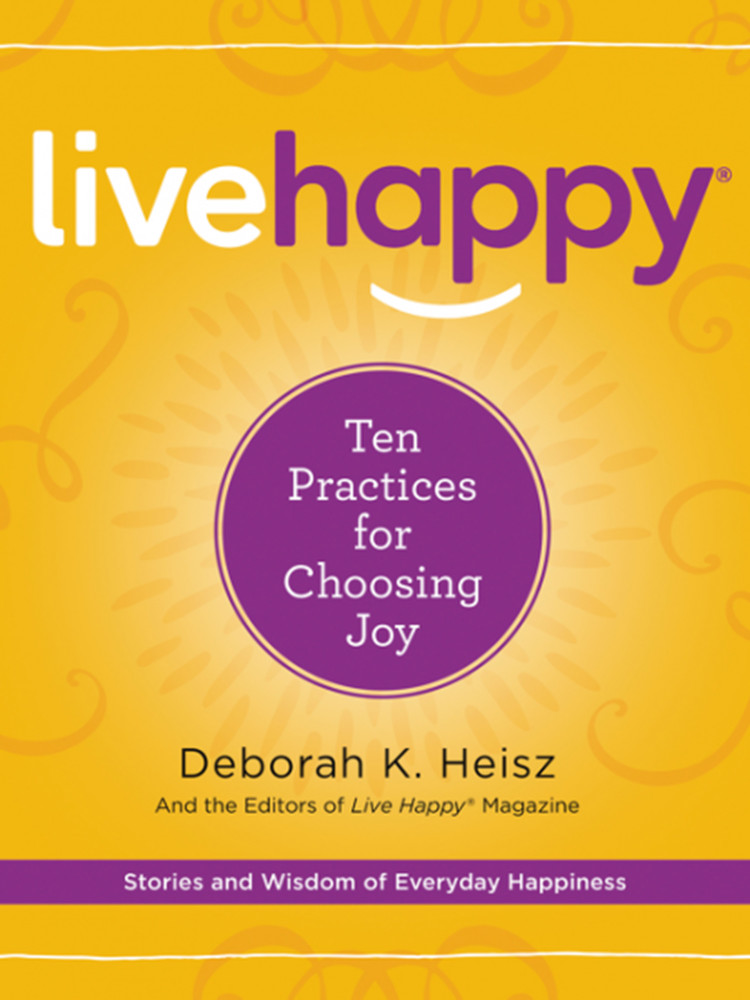By Leslie Barker
The Dallas Morning News
WWR Article Summary (tl;dr) Author Deborah Heisz says there are three components which determine our happiness level. She say some 50 percent is genetics, 10 percent is based on environment and the rest is based on the things we choose to do, the actions we take in response to the world, not the things imposed upon us. So what makes you happy? Empowering women makes me happy.
The Dallas Morning News
If you’re happy and you know it, you can clap your hands. Or if you want to stay that way and perhaps be even happier, you can be creative … or give back … or enlist a positive attitude … or be mindful.
Such are some suggestions from “Live Happy: Ten Practices for Choosing Joy” (Harper Elixir; $25.99). The book by Deborah Heisz, editorial director of the Dallas-based Live Happy magazine, was released earlier this week, just in time for International Day of Happiness.
If that somehow isn’t on your calendar, it officially takes place on Sunday.
Meanwhile, we talked about happiness with Heisz. Here are some of her thoughts:
Happiness is much more than an emotion. “This is not Bobby McFerrin,” she says. “This is not ‘Don’t Worry Be Happy.’ It’s giving back. It’s creativity. It’s not about the emotion; it’s not about hedonic. It’s about the eudaemonic,” which is about finding meaning.
Don’t discount the value of something that brings you temporary happiness, like riding a roller coaster might. “It’s impossible to maintain that on a regular basis. But you can have the other type regularly.”
People who are happy are not happy every day. That’s a big misconception, she says; she gets asked that all the time. Ditto for this one: “People who are happy are unaware of the real world.” Happiness isn’t a moment; it’s an ongoing attitude, she says.
Sometimes being happier is all you can ask for. Just telling someone to “be happy” can come across as glib, Heisz acknowledges; those who are clinically depressed should seek treatment. But, she adds, “The important thing is that you can be happier. You can do things to improve your overall perceived well-being, whether you’re happy or depressed to begin with.”
Three components determine our happiness level. Some 50 percent is genetics, she says; if you have happy parents, you have a good shot at being happy, too.
Of the other 50 percent, “let’s say 10 is based on environment,” Heisz says. The rest, more significant than environment, are “the things we choose to do, the actions we take in response to the world, not the things imposed upon us.”
Happiness can change your brain. Expressing gratitude shows increased activity in your hypothalamus, which regulates your eating, drinking, sleep, your metabolism and stress level, she says. You can “rewire how neurons fire in your brain over time.”
Being happy is easy to do. And easy not to do. The steps outlined in the book, taking a positive attitude, being grateful, can be simple. Take five minutes every day to write down three things that went right, for instance. But getting off-track happens, so make yourself hop back on.
“It becomes second nature,” she says. “Like any habit, once you do it long enough, it becomes part of your life. Don’t try to do all 10 at once. Try to do one or two. Once you have those mastered, do another. If you have to use all your energy on them, you’ll quit.”
Being happy can be pressure in itself. One unexpected element of studying happiness that has emerged is what Heisz calls “happiness backlash. You start measuring everything as ‘Am I happy enough?'”
Which leads to the next point:
Being happy isn’t necessarily a goal to be reached. Instead, it’s a lifelong journey, she says. “For a long time, people were like, ‘When I get my next job, I’ll be happier.’ Or ‘When I find the right person, I’ll be happier.’ Or ‘When I make more money, I’ll be happier.’
“Instead, if they’re happier, they’re more likely to get a promotion, more likely to make more money, more likely to meet the right person. That information is getting out there. Working with happiness is not with happiness as a goal. It’s feeling like we’re living the life we want; that’s kind of the goal.”














































































































































































































































































































































































